Royal Knights Bicycle Company of Montreal from the 1970s
The Royal Knights brand name of bicycles was a short lived brand in Quebec. The Royal Knights brand name was the creation of two Japanese companies who contracted a Canadian company to assemble the bicycles in Canada.
This was one of the first of a series of ventures by foreign companies to assemble or manufacture bicycles in Canada after the “Bike Boom” had begun. The “Bike Boom” had started in the late 1960s in Canada and the United States. The international bicycle industry recognized this as a chance to profit.
The two Japanese companies were Mori Bicycles of Kobe, Japan and Ataka Sangyo with headquarters in Osaka, Japan.
Ataka was one of the ten largest trading companies in Japan. Ataka had an office in Montreal which Richardsons Directory listed as textile trading. Ataka trading had a venture with Monarch Wear of Canada, a Winnipeg clothing manufaturing company.
Mori Bicycles was originally from the Philippians. During WWII the company closed. In 1962 the company restarted in Japan.
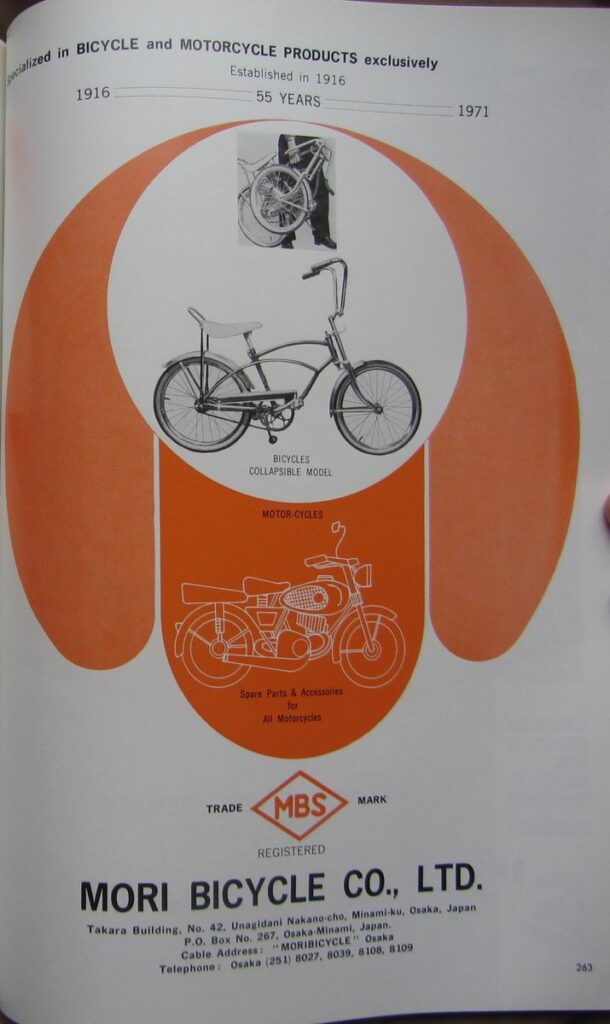
Mori and Ataka explored the idea of assembling bicycles in North America. Mori Bicycles forms Royal Knights Bicycle Co., Ltd. in Montreal and the Moto-Naute Inc. was contracted to assemble the bicycles.
The Canadian company Moto-Naute Inc. had a factory factory in Saint- Georges de Bauce, Quebec. This company was formed in 1971 by Mr. Clement Veilleux. The plan was to build amphibious vehicles and/or water craft. Moto-Naute actively promoted their water craft at boat shows but sales were slow. In 1972, Moto-Naute contracted to build bicycles for Royal Knight Company. In March 1972, Moto-Naute recieved a grant from the federal government to increase the number of employees.
Production began in the second half of 1972. The plan was to produce 360,000 bicycles a year. According to Mori Bicycles much of the bicycle production went to Sears. These bicycle probably had a Sears brand name. The Royal Knight bicycles were distributed by Moto Naute. The Royal Knight bicycles that I have seen were 10-speed type.
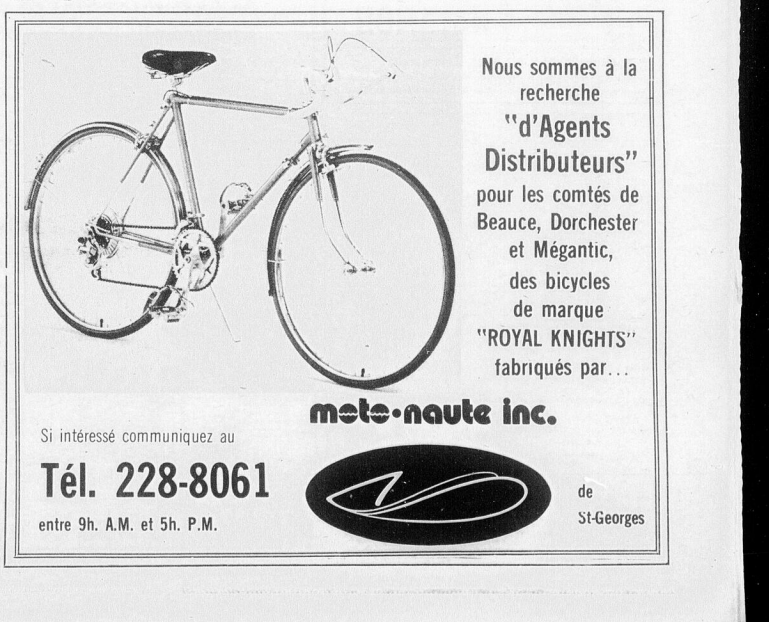
There are no reports of any problems with bicycle production or sales. Local bicycle shop advertising in Quebec listed Royal Knight bicycles. I do not know if Royal Knight bicycles were distributed out side of the province of Quebec.
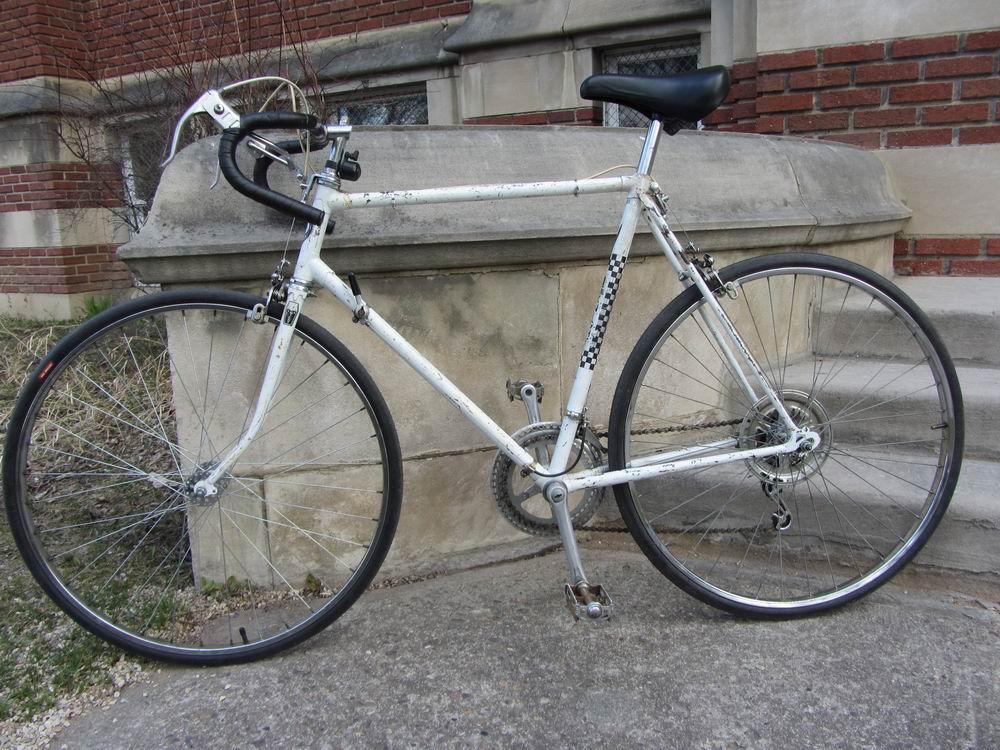
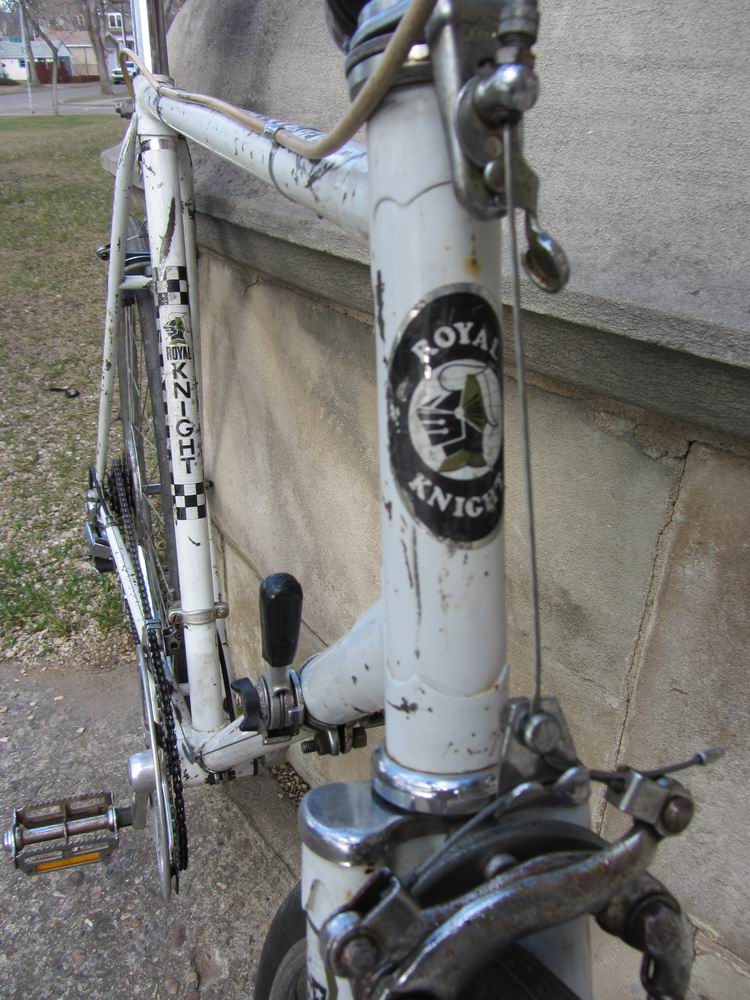
In 1977 the Japanese companies ended the contract with the Moto-Naute factory. I cannot find any source that explains why the contracted end. I suspect the ending of the contract was caused by serious financial issues with Ataka. An executive for Ataka America in the early 1970s had made some serious financial commitments that could not be met. The financial problems for Ataka in Japan became clear in 1975. The company was divided and parts of the company went to different trading companies and banks. The largest share of Ataka went to Itochu Corporation (C Itoh trading company) and this was concluded in late 1976.
The Moto-Naute factory by 1977 was under the control of Procycle. Moto-Naute Inc. may have been in financial difficulty and Banque Canadienne Nationale took over the management of the companies debts in May of 1974.
Procycle saw no reason why they could not fill the void in 1977 and continued to produce and distribute bicycles. Procycle bicycles had the Velo-Sport brand name. Velo-sport bicycles were distributed in Quebec as early as 1976.
Mori Bicycles made an agreement with Procycle to supply bicycle components and continued to work with Procycle for many years. The company in Japan still exists in Osaka and is now called Mobic.
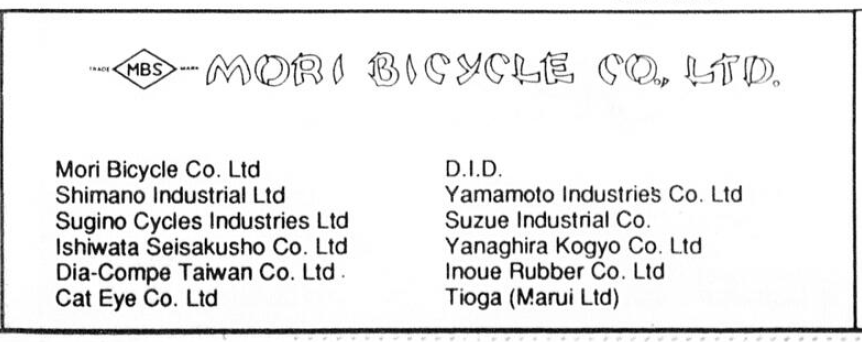
Note: There is also a Mori Industries company in Japan. There is no connection to Mori Bicycles. Mori Industries has several different interests over the years, including bicycle components.
Sources:
Royal Knight, Moto-Naute and Procycle: a variety of Quebec french language newspapers.